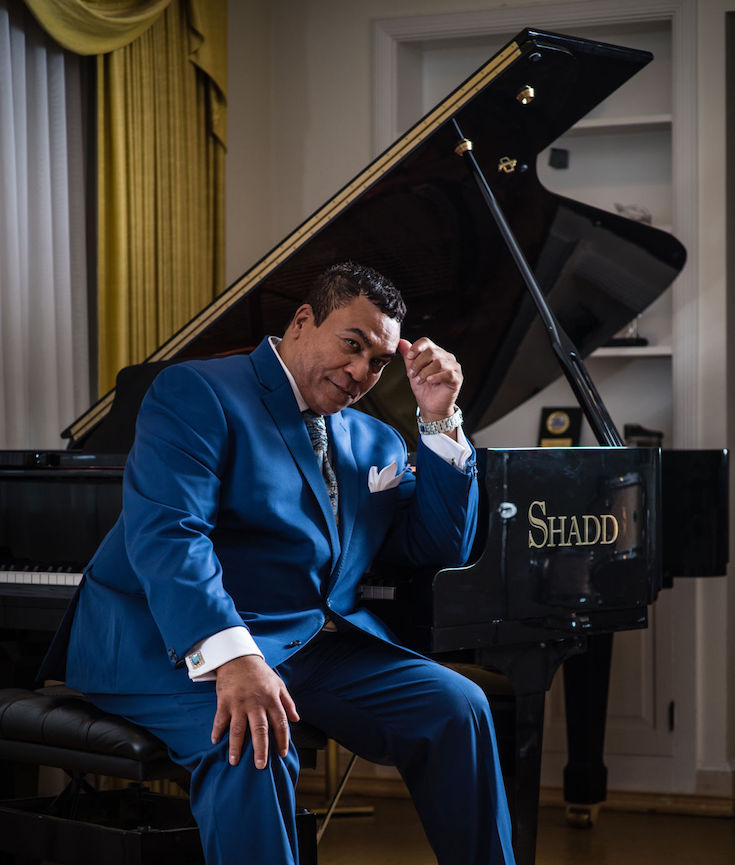[dropcap]At[/dropcap] Catholic University on a warm September evening, a student plays piano at a fundraising dinner to celebrate the school’s new arts council. As musical preludes waft through the candlelit room of donors and university officials, Warren Shadd sits with his back to the performance and listens intently to the piano, which bears his name. After the final note, he applauds and smiles softly. He wasn’t expecting any problems. But he has been making and selling pianos only since 2012, and everything matters to him — from the shop floor in the Bronx, where he “white-gloves” each instrument, to performances like this one.
Shadd — decked out that evening in a black suit and gold silk tie — is keenly aware that century-spanning companies, such as Steinway & Sons or Bösendorfer or Yamaha, have a head start. “We’re brand new,” he says. “We can’t let anything seep through the cracks.”
If product placement is any measure, then something’s going right. Shadd, who, as far as anyone knows, is the nation’s only African American piano maker, has his high-end, made-to-order instruments in several Rolls-Royce dealerships, on the set of the television show “Empire” and at the Vatican.


NATIONAL MUSEUM OF AFRICAN AMERICAN HISTORY & CULTURE | WASHINGTON, DC
The National Museum of African American History and Culture is the only national museum devoted exclusively to the documentation of African American life, history, and culture. It was established by Act of Congress in 2003, following decades of efforts to promote and highlight the contributions of African Americans. To date, the Museum has collected more than 36,000 artifacts and nearly 100,000 individuals have become charter members. The Museum opened to the public on September 24, 2016, as the 19th and newest museum of the Smithsonian Institution. (Website).


You must be logged in to post a comment.